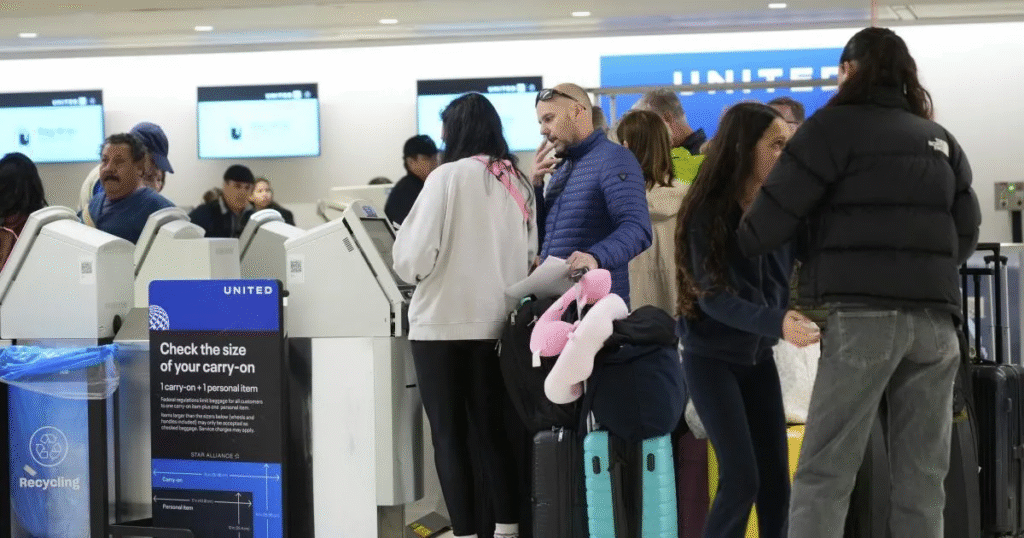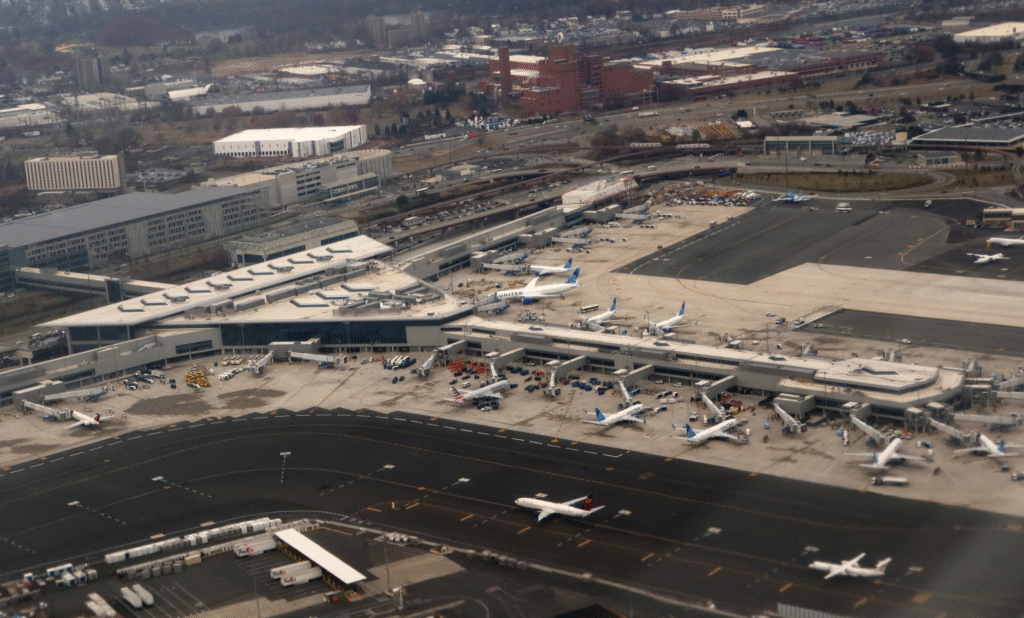Veteran Air Traffic Controller Sounds Alarm Over Staffing Crisis and Tech Failures at Newark Airport
Veteran A seasoned air traffic controller overseeing operations for Newark Liberty International Airport is speaking out about critical staffing shortages and recurring technical failures that have contributed to recent flight delays, cancellations, and safety concerns.
Veteran Jonathan Stewart, supervisor at the Philadelphia Terminal Radar Approach Control (TRACON) facility, described the current conditions faced by air traffic controllers as overwhelming and dangerous. “Like anything else, you’re going to have a breaking point.”
Veteran The TRACON facility manages flights arriving and departing from Newark, a hub that has been hit by major disruptions in recent weeks. These include extensive flight delays and cancellations tied to a combination of runway construction, congestion, and a shortage of trained air traffic controllers.
Veteran More alarmingly, the facility experienced two serious blackouts—on April 28 and May 9—during which radar systems failed and screens went dark, leaving controllers temporarily blind and unable to communicate with pilots.
Veteran As a result, Stewart and several of his colleagues are now on trauma leave, some shaken by the blackouts and the fear of catastrophic consequences. .
In an effort to prepare for future outages, Stewart has taken to writing down aircraft callsigns in a notebook—a precaution he believes could help during another system failure. He also revealed that on May 4, he narrowly prevented a potential mid-air collision involving two planes flying head-on at the same altitude.
Stewart’s testimony underscores the urgent need for investment in both staffing and updated technology within the U.S. air traffic control system, particularly at high-traffic hubs like Newark.
Controller Speaks Out as Newark Airport Faces Ongoing Staffing and Tech Crisis
CNN has reached out to both the National Transportation Safety Board (NTSB) and the Federal Aviation Administration (FAA) seeking details about a near-collision incident on May 4 near Newark Liberty International Airport.
Following that close call, veteran air traffic controller Jonathan Stewart said he emailed FAA leadership to express sharp criticism of their management. Now, he’s going public to shed light on the pressures controllers are facing and to advocate for more support, according to a Wall Street Journal report.
Although Newark’s airspace is managed by a group of highly skilled controllers, Stewart emphasized they are working under intense strain without the resources necessary to safely handle growing traffic volumes.

According to the FAA, the Philadelphia Terminal Radar Approach Control (TRACON) facility—which manages Newark’s flight traffic—requires 38 certified professional controllers to function effectively. Currently, only 24 positions are filled, equating to just 63% staffing. Making matters worse, 16 of those controllers are expected to return to a New York-based FAA facility next year, potentially deepening the shortfall.
The situation at Newark reflects broader challenges facing the U.S. aviation system in 2025, a year already marked by troubling incidents—including a deadly collision between a commercial airliner.
Technical Failures at Newark
The April 28 outage was triggered by the failure of a primary telecommunications line, and a backup system that should have taken over did not engage, FAA Deputy Chief Operating Officer Franklin McIntosh revealed during a Senate hearing on Wednesday. Similar backup systems are used at other locations nationwide.
McIntosh acknowledged the impact of staffing shortages at the facility, citing an incident earlier this week when only three controllers were handling all Newark arrivals and departures for more than an hour.
In just the past week, two additional disruptions have occurred. On Sunday morning, the FAA issued a ground stop for Newark-bound flights due to another “telecommunications issue.” And on May 9, a second 90-second radar blackout struck the facility in the early morning hours.
CBS News obtained video footage reportedly showing the moment radar screens at the Philadelphia TRACON facility restored during the May 9 outage, though CNN has not independently verified the video’s authenticity.
The Philadelphia facility is responsible for guiding flights approaching and departing Newark Airport before the planes are handed over to or from the airport’s control tower.
FAA Response
In response to the growing concerns, Acting FAA Administrator Chris Rocheleau has announced the formation of an “emergency task force” to ensure safe operations continue at Newark and address the systemic issues plaguing the facility.

FAA Meets with Airlines as Staffing Crisis Deepens Ahead of Summer Travel Surge
In an effort to curb delays and cancellations at Newark Liberty International Airport ahead of the busy summer season, the Federal Aviation Administration (FAA) held a “delay reduction meeting” this week with major U.S. airlines. United Airlines, Delta Air Lines, JetBlue Airways, American Airlines, Alaska Airlines, Spirit Airlines, and Allegiant Air were among the participants.
The agency noted that air traffic controller training classes are fully booked through next July, signaling a “healthy pipeline” of future recruits.
According to the National Air Traffic Controllers Association, the current number of certified controllers is near a 30-year low. The union represents approximately 10,800 controllers nationwide.
United Airlines CEO Scott Kirby recently acknowledged the chronic understaffing at the Newark control facility, calling it a long-standing issue.
However, veteran controller Jonathan Stewart disputed that claim, telling The Wall Street Journal that no one abandoned their post and that controllers should not be blamed for the delays.
Stewart also highlighted the psychological toll the job takes, noting that while individual safety incidents may not always feel immediately traumatic, the stress accumulates over time and can deeply affect air traffic controllers.
